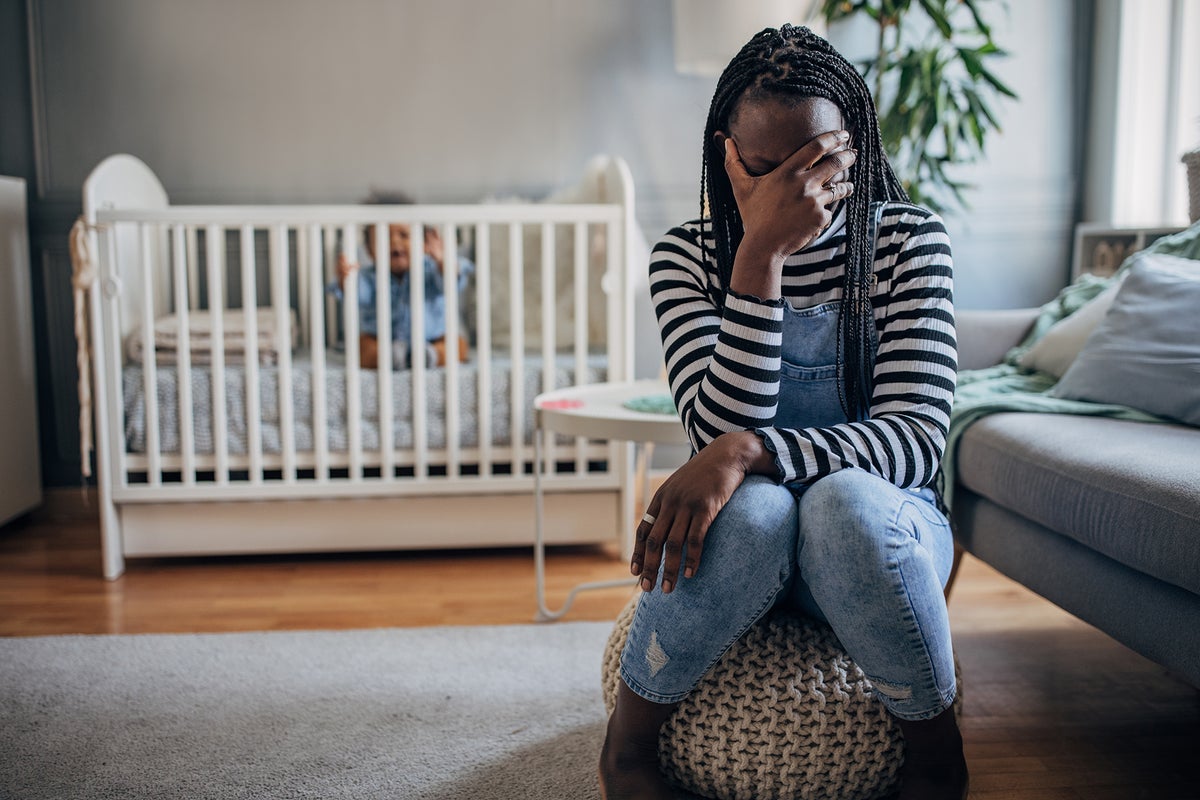It was 3 A.M., and my seven-month-old would not stay asleep.
She didn’t want to nurse. She cried when I offered her a bottle. I bounced her in my arms, softly singing the Cure’s Just Like Heaven .

That didn’t help, either. With a sigh I put her in her crib, left the room and set my phone timer for 15 minutes. I would check on her again after my alarm buzzed.
I was sleep training my baby. On supporting science journalism If you're enjoying this article, consider supporting our award-winning journalism by subscribing . By purchasing a subscription you are helping to ensure the future of impactful stories about the discoveries and ideas shaping our world today.
Sleep training has become the third rail of parenting conversations , with fierce defenders and opponents on either side. Some claim it’s a miracle. Others liken it to torture—for both the baby and the parent.
Still others aren’t convinced it will actually “work.” Sleep training is a catchall term for any behavioral intervention intended to improve a child’s ability to fall and stay asleep independently, often as it relates to sleep in infants (those under one year old). The idea is to avoid reinforcing the baby’s cries and yells for attention at bedtime, ultimately allowing those behaviors to fade, or go extinct, over time.
Practices vary, from setting a structured bedtime routine to what is commonly referred to as “cry it out” (considered full extinction), where caregivers allow a baby to cry until the baby falls asleep. My family chose a version of the Ferber method (called graduated extinction), where we initially comforted our baby when she cried but slowly increased the amount of time between her cry and when we intervened. Parents may not ask for or take advice regarding sleep training their child for many reasons.
The dread of enduring crying or fears around bonding with one’s baby are often cited as main barriers for parents to sleep train . Conflicting information abounds, as one study found that parenting advice books about sleep had authors with a broad range of backgrounds, nearly half lacking professional credentials in medicine, counseling or academic research; the books’ advice varied widely as well, with some endorsing full extinction and others opposing it. Overall the evidence suggests that sleep training (broadly defined) is safe and effective at addressing sleep difficulties.
Multiple reviews that summarize all the available research on sleep training show that these practices improve sleep in children, from those under six months through five years old. “Cry it out” is particularly effective, though the evidence supports a range of practices that vary in how much crying a parent wants to tolerate. Despite the evidence, maybe there’s a question still nagging at you: Am I a bad parent if I let my baby suffer just so I can get some shut-eye? I’m here to convince you that sleep is not a luxury, and a desire for sleep is anything but selfish.
Poor sleep during the first year of a baby’s life is related to an increased risk of mothers developing postpartum depression, a condition that affects approximately one in six women . Postpartum depression can involve feelings of sadness, guilt and lack of enjoyment in everyday things, making it difficult for moms to take care of themselves and their children. To make matters worse, depression can lead to insomnia, which exacerbates depression, creating a terrible catch-22.
When moms are depressed, babies sleep worse too . Further, when moms get poor sleep, other caregivers suffer: One study found that when mothers had poor sleep at six months postpartum, both mothers and fathers reported more depression symptoms six months later. For some moms, getting enough sleep could be a matter of life and death.
Suicide is one of the leading causes of death for new mothers, and sleep difficulties can exacerbate suicidal thoughts for mothers experiencing postpartum depression. Sleep training may help break this cycle. Researchers in Australia conducted one of the largest studies to assess the long-term impacts of sleep training in over 300 families.
Mothers were randomly assigned to either receive guidance on sleep-training practices or receive care as usual from their medical team when their babies were eight to 10 months old. Mothers who sleep trained experienced less severe depression symptoms compared with other mothers when their children were 10 months, 12 months and two years old . These children also had fewer sleep difficulties compared to other children.
Other research has assessed sleep training and maternal mental health in a rigorous fashion, with varying results. Some studies find that it is related to reduced maternal depression , while others do not . Researchers define sleep training in many ways, making it difficult to know if a specific method is more or less effective than others at addressing mental health.
The benefits of sleep training may be specific to the baby and toddler years. Those same Australian researchers found that when children were six years old, there was no longer a relationship between sleep training as a baby and maternal mental health. In fact, sleep training at eight months didn’t seem to matter on a host of outcomes when children were six, including how well children got along with their parents and child behavioral issues.
This is good news: Sleep training does not appear to have long-term negative consequences on children or parents. Sleep training does not cure depression. Support from a mental health care provider trained in postpartum concerns or insomnia may be essential if you’re experiencing difficulties as a new parent.
Additionally, there may be medical, practical or personal reasons why sleep training is not in the best interest of your family. Some methods of sleep training may not work for a child with health needs requiring a specific nighttime feeding regiment, or practical when a baby shares a room with a sibling or family member. Whether or not you sleep train your child has no bearing on your worth as a parent (or person).
I’m not a callous and unloving mother because I sleep trained my child, and you’re not an overly permissive or weak mother if you don’t. When we argue about safe and effective parenting choices like sleep training, we are perpetuating the myth that what makes a good parent is sacrifice—sacrificing our mental health, our preferences, our sleep. These arguments make us unnecessarily question our worth as parents, when perhaps the most important thing we could do for our mental health is to have more confidence in our parenting abilities.
Indeed, one study found that when mothers had higher self-efficacy (i.e., they thought they were doing great as a parent), their mental health was unrelated to how well their child slept.
That was the most surprising gift that sleep training provided me: confidence. Confidence in myself as a new mother and the notion that my needs were not in direct conflict with my baby’s needs. I learned to stop letting my insecurity about being a “good mom,” whatever that means, bully me into thinking that my mental health does not matter.
I want that for all parents. That, and a good night’s sleep. My phone buzzed.
My daughter was still awake, crying. I took a deep breath. I went in, comforted her, kissed her tiny forehead and put her back down in the crib.
I set my phone timer again, this time for 20 minutes. She fell asleep. Eventually so did I.
This is an opinion and analysis article, and the views expressed by the author or authors are not necessarily those of Scientific American..



















